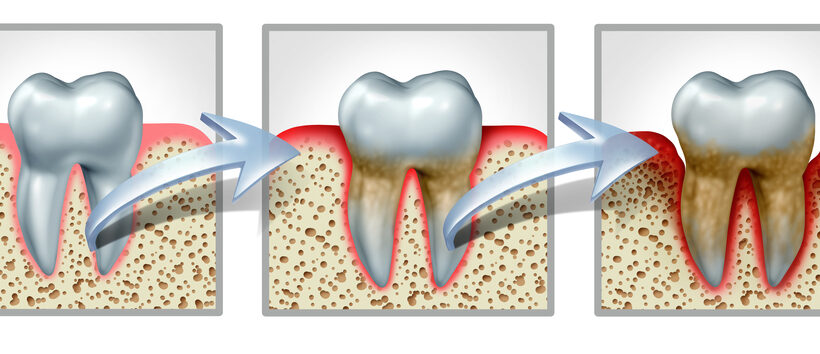All people over age five need a checkup and dental cleaning every six months, but why? If you have no cavities, you brush and floss daily, and your checkup went well, why do you also need a dental cleaning?
This is a great question, and in today’s blog, we’ll provide a solid explanation. To truly understand why cleanings are important, you need to learn about plaque, tartar, gum disease, and what happens during a dental cleaning.
Learning these things will give you a comprehensive, well-rounded answer. Then, if you still have questions, give us a call at Dental Care of Lombard: 630-629-5700. You can chat with Dr. Julie Glud or one of our hygienists for answers to all of your questions.
About Plaque and Tartar
Plaque is the sticky, yellowish or brownish film that builds up on teeth throughout the day. When you brush and floss, you remove a good deal of plaque from your teeth. Sometimes small amounts of plaque will remain between teeth and at the gum line–especially if you skip flossing.
Over 48 hours, plaque calcifies and hardens. The new substance is insoluble and rock-hard, and we call it tartar or calculus. A dental hygienist has the tools and experience to remove all tartar from your teeth during dental cleanings.
Left unremoved, tartar builds up. It smells bad, looks ugly, and causes tooth decay and gum disease.
About Gum Disease
We only think about our gums when they’re sore, but gum tissue has a very important job! Teeth roots reside inside sockets within the jaw. Gum tissue and associated connective tissues hold teeth firmly in the jaw, providing support and strength so that they don’t wobble or loosen. When gums become unhealthy, they can’t do their job, so teeth may loosen or even fall out.
Gum disease is the main cause of adult tooth loss in the US, and it’s linked to increased risk for many systemic conditions of the heart, lungs, and brain. Gum disease also creates complications for diabetics and pregnant women.
Poor oral health is the main cause of gum disease, though hormone fluctuations, use of an asthma inhaler, and certain medications can increase a person’s risk as well. You can reduce your risk by practicing good oral hygiene at home.
Brush twice a day with a soft-bristled toothbrush; floss daily; use an antibacterial mouthwash; hydrate, hydrate, hydrate; and do not allow sweet or starchy foods and beverages to linger in your mouth.
Gum disease is chronic, so it won’t ever totally go away. Once you develop the condition, we must first re-establish good gum health, then keep your mouth clean and healthy so that you don’t experience flare-ups. If you have gum disease, we’ll recommend a deep dental cleaning instead of a regular cleaning.
Deep cleanings take longer and are more invasive, but they can stop gum disease from progressing and restore gum health. After a deep cleaning, your gums will begin to heal and reform bonds with teeth roots.
About a Dental Cleaning
There are two types of dental cleanings: regular and deep. A regular cleaning takes about an hour. The hygienist will probe your gums and record pocket depths. A pocket over .3mm indicates gum disease. Pockets form when bacteria and infection destroy the bonds between teeth and gums to create pockets of infection. In periodontal pockets next to teeth, infection and bacteria grow. In this case, the patient needs a deep cleaning.
In the absence of gum disease, the hygienist will clean your teeth using an ultrasonic scaler. This tool emits sound waves to basically break up tartar and shake it off teeth. The hygienist may also use a traditional dental scraper, but most of your cleaning will be accomplished with the ultrasonic scaler. Next, the hygienist will floss your teeth and ask questions about your oral health habits. He or she may recommend changes in your daily oral care routine or the products you use.
At a deep dental cleaning, the hygienist will scale your teeth to remove plaque above, at, and below the gum line. He or she will also plane your teeth roots to smooth rough areas where plaque and bacteria tend to build up. Once your teeth crowns and roots are clean, gums will naturally begin to rebond with the base of your teeth. If you undergo a deep dental cleaning, the hygienist will want to clean your teeth every three or four months to ensure lasting gum health.
Schedule Your Checkup and Dental Cleaning Today
Has it been six months or longer since you had a dental cleaning? Call Dental Care of Lombard today at 630-629-5700 and schedule a checkup with Dr. Glud and a cleaning with one of our gentle, professional hygienists. We can help you prevent cavities and gum disease with regular, six-month checkups and cleanings.

